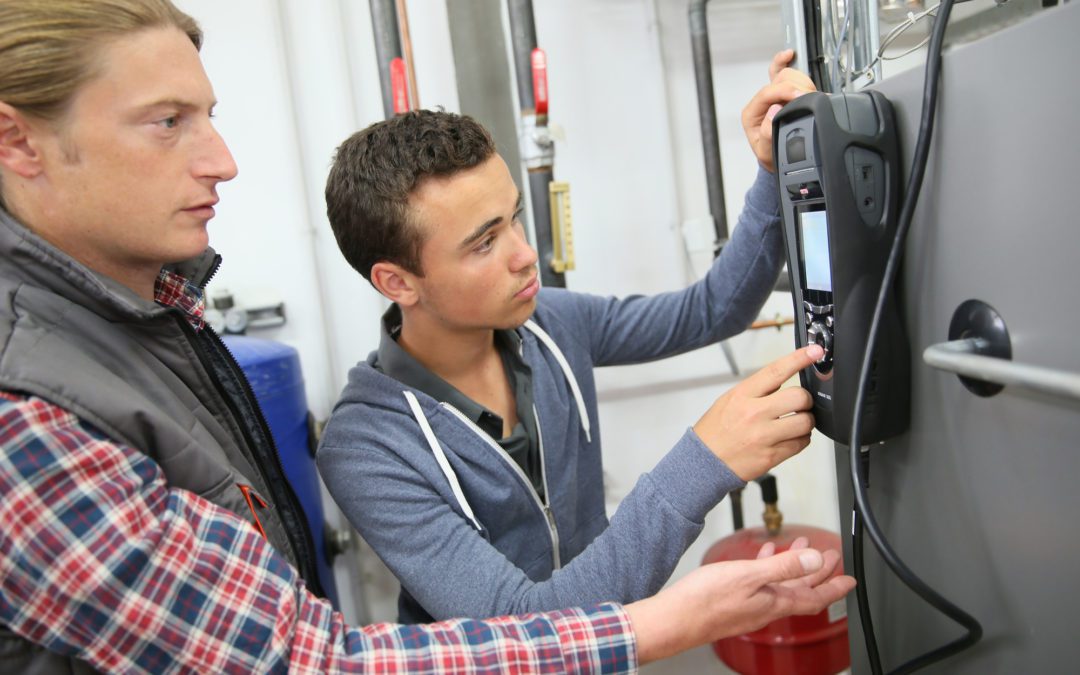When colder months approach, it’s time to move away from cooling and focus on heating your home. The majority of homeowners decide to install heat pumps as opposed to furnaces or boilers due to its increased efficiency. Generally, it lasts longer and is a cost-effective heating solution. You will notice leaking water in and around your heat pump and to determine the cause, you have to educate yourself about how heat pumps work.
How Do They Work?
Air naturally decreases in temperature, which is why a heat pump is required to push heat in the opposite direction. Hence the term ‘pump’ is used to describe the application of energy to increase the temperature of the air. Heat pumps operate just like a refrigerator or air conditioner. It removes heat from the air and disposes of it on the outside. Refrigeration units are responsible for cooling and heat pumps for heating. However, heat pumps are reversible and can provide cold air while removing heat.
Even though heat pumps are efficient, leaks can occur. While it may not be a huge issue, it’s imperative to have it checked by an HVAC technician. In the majority of cases, leaks require a quick, inexpensive fix. However, it should never be left unattended as it could cause further damage. The presence of stagnant water may affect the electrical components leading to problems with the circuit. These repairs are far more costly than plugging a leak.
Reasons for Leaks
Regardless of the brand of heat pump, they’re all susceptible to leaks. The reason for these leaks may differ, but you should address the matter immediately. Most heat pumps come equipped with a drain pan that is responsible for catching condensation from the unit. Two things occur that cause leaks in this instance. Firstly, the drain line is possibly blocked, preventing the condensation from flowing through easily. Secondly, the drain pan may be clogged with debris or other elements which results in water leaking out and causing a puddle around the unit.
Heat pumps are designed to deal with water and prevent it from dripping out. A floater situated in the pan automatically shuts down the system, preventing the water from dripping out. It’s critical to note that once the heat pump turns the system off, it will only switch back on again after repair of the drainage fault. The technician must reposition the drain pan for effective operation.
Air conditioners and, in particular, heat pumps require a specific level of refrigerant to operate efficiently. It’s common during summer months that refrigerant levels decrease, which results in the formation of ice on the cooling coils adversely affecting the unit’s cooling abilities and overall function. When the heat pump is turned off, the ice on the coils starts to melt, resulting in leaking water. You risk forming puddles of water around the unit, which is dangerous.
The cooling coil captures condensation from the air and transports it down the drain pan and into another drain. Naturally, dirt and other components in the air become trapped on the coils reducing its ability to work efficiently. As a result, water leaks onto the ground–another reason why we recommend regular maintenance of your system.
Over some time, the drain pan corrodes and could end up cracking. If you find water on your floor, a cracked drain pan is a possible fault.
Maintenance
As is the case with all types of heating and cooling systems, regular maintenance is critical to extending its efficiency. We suggest that you have a professional technician inspect your heat pump at least once a year. To prevent possible leaks, they will undertake the following:
- Check for blockages in the ducts, filters, and coil
- Repair any leakages
- Check airflow and refrigerant according to measurement
- Ensure the refrigerant isn’t leaking
- Inspect the belts for wear and tear and keep the motor well lubricated
- Check the thermostat operation.
Addressing minor problems is the best, affordable way to deal with heat pump issues. Apart from the fact that you will have a well-run heat pump when operated effectively, it reduces the strain on your energy usage.
Conclusion
Installing a heat pump in your home is a smart decision. Although the initial cash outlay is significant, with its ability to both cool and heat the inside of a home, you’ll find that the return on your investment is guaranteed. Apart from increasing the value of your property, heat pumps offer you the ability to control your environment.
In the dead of winter, heat pumps maintain a warm, cozy interior while the summer reverses the process and it keeps your home cool. However, as it is merely a machine, it requires periodic attention from a professional technician. At Valley Comfort, we are trained to assist in regular maintenance of your heat pumps, preventing the possibility of leaking water. Instead of allowing the fault to sit and in some cases going through a season without the aid of a heat pump, have a qualified technician inspect your system and confront winter or summer with confidence.


